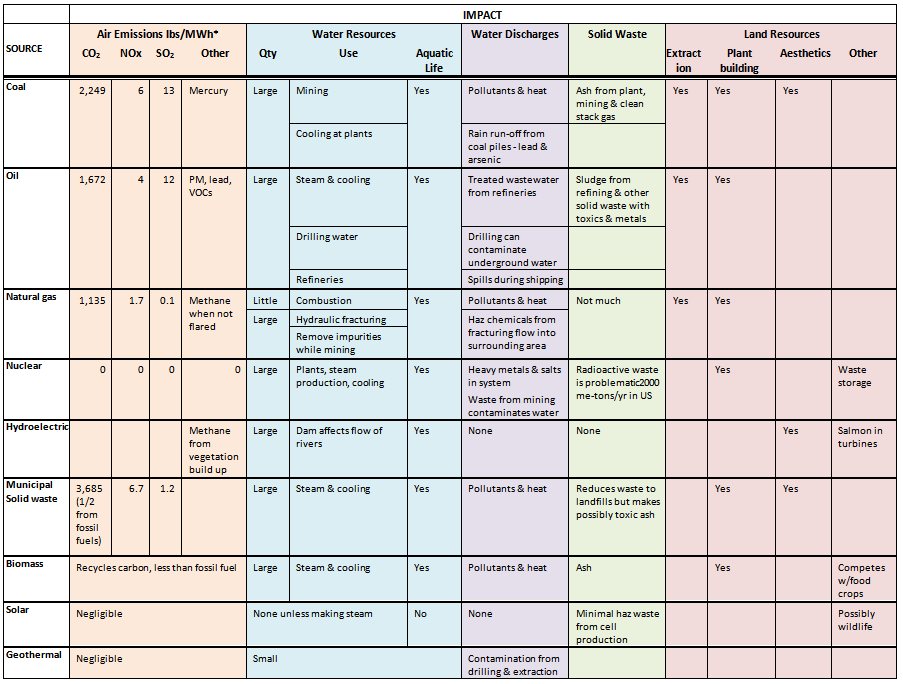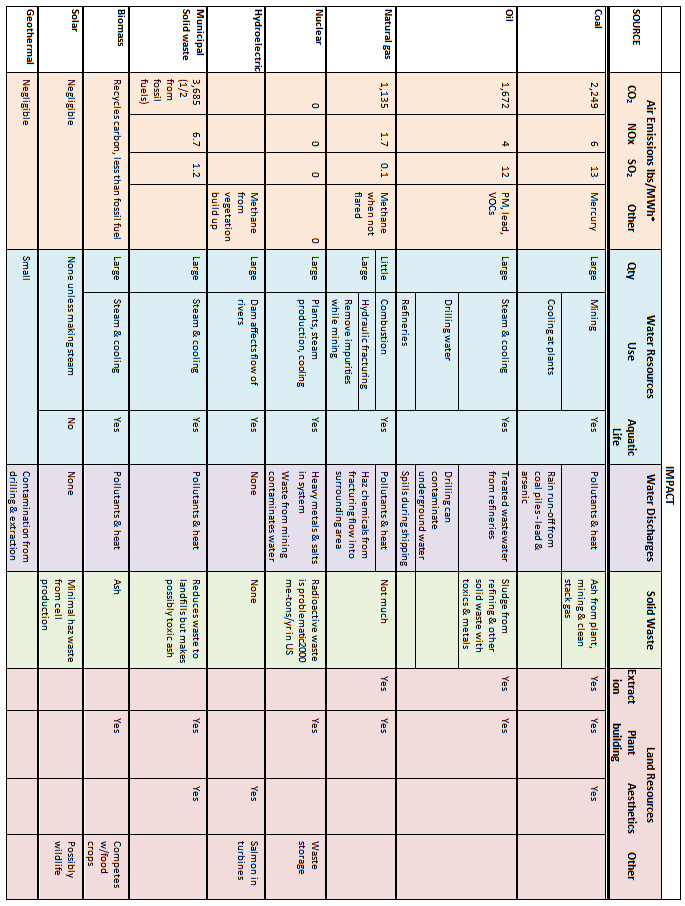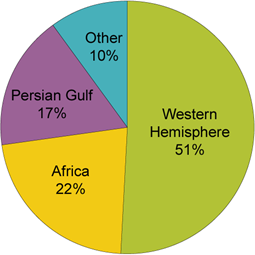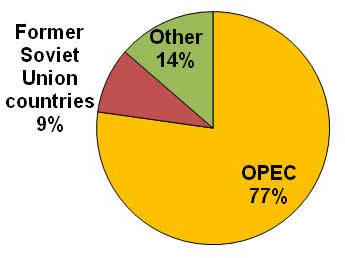| << Chapter < Page | Chapter >> Page > |


The use of fossil fuels has allowed much of the global population to reach a higher standard of living. However, this dependence on fossil fuels results in many significant impacts on society. Our modern technologies and services, such as transportation, landscaping, and plastics production depend in many ways on fossil fuels. Meaning, if supplies become limited or extremely costly, our economies are vulnerable. If countries do not have fossil fuel reserves of their own, they incur even more risk. The United States has become more and more dependent on foreign oil since 1970 when our own oil production peaked. We imported over half of the crude oil and refined petroleum products that we consumed during 2009. Just over half of these imports came from the Western Hemisphere (see Figure Sources of United States Net Petroleum Imports, 2009 ).

The holder of oil reserves in the oil market is the Organization of Petroleum Exporting Countries , (OPEC) (see Figure Proven Oil Reserves Holders ). As of January 2009, there were 12 member countries in OPEC: Algeria, Angola, Ecuador, Iran, Iraq, Kuwait, Libya, Nigeria, Qatar, Saudi Arabia, the United Arab Emirates, and Venezuela. OPEC attempts to influence the amount of oil available to the world by assigning a production quota to each member except Iraq, for which no quota is presently set. Overall compliance with these quotas is mixed since the individual countries make the actual production decisions. All of these countries have a national oil company but also allow international oil companies to operate within their borders. They can restrict the amounts of production by those oil companies. Therefore, the OPEC countries have a large influence on how much of world demand is met by OPEC and non-OPEC supply. A recent example of this is the price increases that occurred during the year 2011 after multiple popular uprisings in Arab countries, including Libya.

This pressure has lead the United States to developing policies that would reduce reliance on foreign oil such as developing additional domestic sources and obtaining it from non-Middle Eastern countries such as Canada, Mexico, Venezuela, and Nigeria. However, since fossil fuel reserves create jobs and provide dividends to investors, a lot is at stake in a nation that has these reserves. Depending on whether that oil wealth is shared with the country’s inhabitants or retained by the oil companies and dictatorships, as in Nigeria prior to the 1990s, a nation with fossil fuel reserves may benefit or come out even worse.

Notification Switch
Would you like to follow the 'Sustainability: a comprehensive foundation' conversation and receive update notifications?